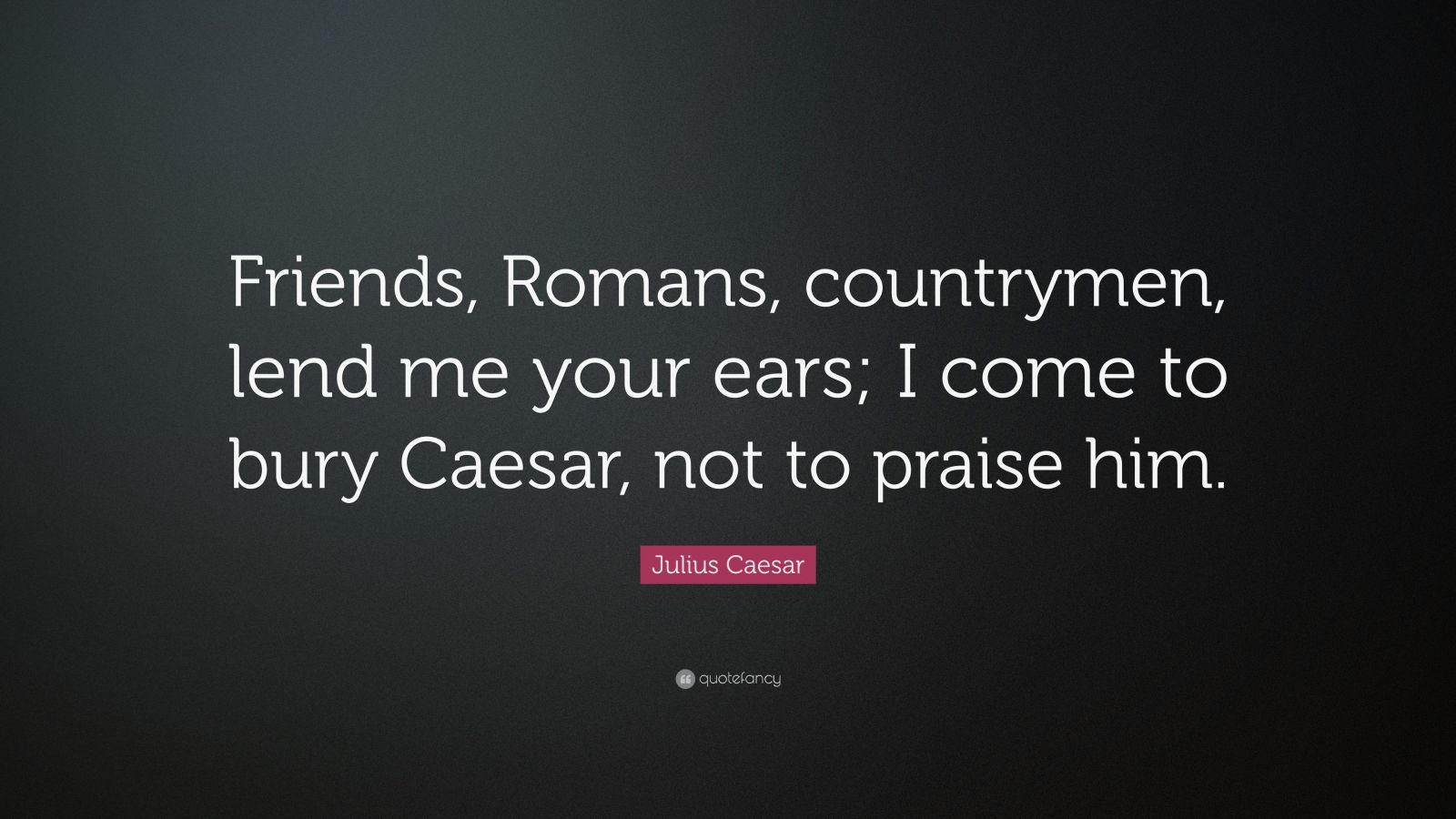
The succession of hard stresses is also Shakespeare's way of using the verse to help Antony cut through the din of the crowd. You can watch Damian Lewis reciting this famous speech here."Friends, Romans, countrymen." / / - / - / - /įriends, Romans, countrymen, lend me your ears įrom a rhythmic perspective, the trochaic feel of this opening immediately commands attention.

He concludes, however, with a final line that offers a glimmer of hope, implying that if Rome would only recover itself, he would be all right again. Mark Antony brings his ‘Friends, Romans, countrymen’ speech, a masterly piece of oratory, to a rousing end with an appeal to personal emotion, claiming that seeing Rome so corrupted by hatred and blinded by unreason has broken his heart. The mob spirit has been fomented and everyone has made Caesar, even in death, the target of their hatred. Observe the clever pun on Brutus’ name in ‘brutish beasts’: Antony stops short of calling Brutus a beast, but it’s clear enough that he thinks the crowd has been manipulated with violent thugs and everyone has lost their ability to think rationally about Caesar. My heart is in the coffin there with Caesar,Īnd I must pause till it come back to me.

O judgment! thou art fled to brutish beasts,Īnd men have lost their reason. So why do they now not mourn for him in death? (Note Antony’s skilful use of ‘cause’ twice here: they loved Caesar with good cause, but what cause is responsible for their failure to shed a tear at his passing?) What cause withholds you then, to mourn for him?Īntony reminds the crowd of Romans that they all loved Caesar once too, and they had reasons for doing so: Caesar was clearly a good leader. You all did love him once, not without cause: I speak not to disprove what Brutus spoke,Īlthough he clearly is disproving what Brutus claimed of Caesar, Antony maintains that this isn’t his aim: he’s merely telling the truth based on what he knows of Caesar. Again, Antony appeals to the crowd: does this seem like the action of an ambitious man? Which he did thrice refuse: was this ambition?Īntony reminds the Romans that at the festival of Lupercalia (held in mid-February, around the same time as our modern Valentine’s Day so just a month before Caesar was assassinated), he publicly presented Julius Caesar with a crown, but Caesar refused it three times (remember, he was ‘just’ a general, a military leader: not an emperor). Hardly the actions of an ambitious man, who should be harder-hearted than this! But Brutus says Caesar was ambitious, and Brutus is honourable, so … it must be true … right? Note how Antony continues to sow the seeds of doubt in the crowd’s mind. When the poor of the city suffered, Caesar wept with pity for them. When that the poor have cried, Caesar hath wept:Īmbition should be made of sterner stuff: Does this seem ‘ambitious’ behaviour to you? Let’s look at what Caesar did: he took many enemies prisoner and brought them here to Rome, and these captives’ ransoms, when paid, helped to make Rome rich.

Whose ransoms did the general coffers fill: He hath brought many captives home to Rome Obviously this last bit is implied, not spoken aloud – but that’s what Mark Antony is building towards. But then, Brutus says Caesar was ambitious, and Brutus is honourable, so ‘I guess I was wrong (but I know I’m not)’. Antony now slowly begins to ease in some praise for Caesar, but keeps it personal to him, rather than making grand, universal statements about Caesar’s good qualities: he was his friend, and faithful and just to him.


 0 kommentar(er)
0 kommentar(er)
